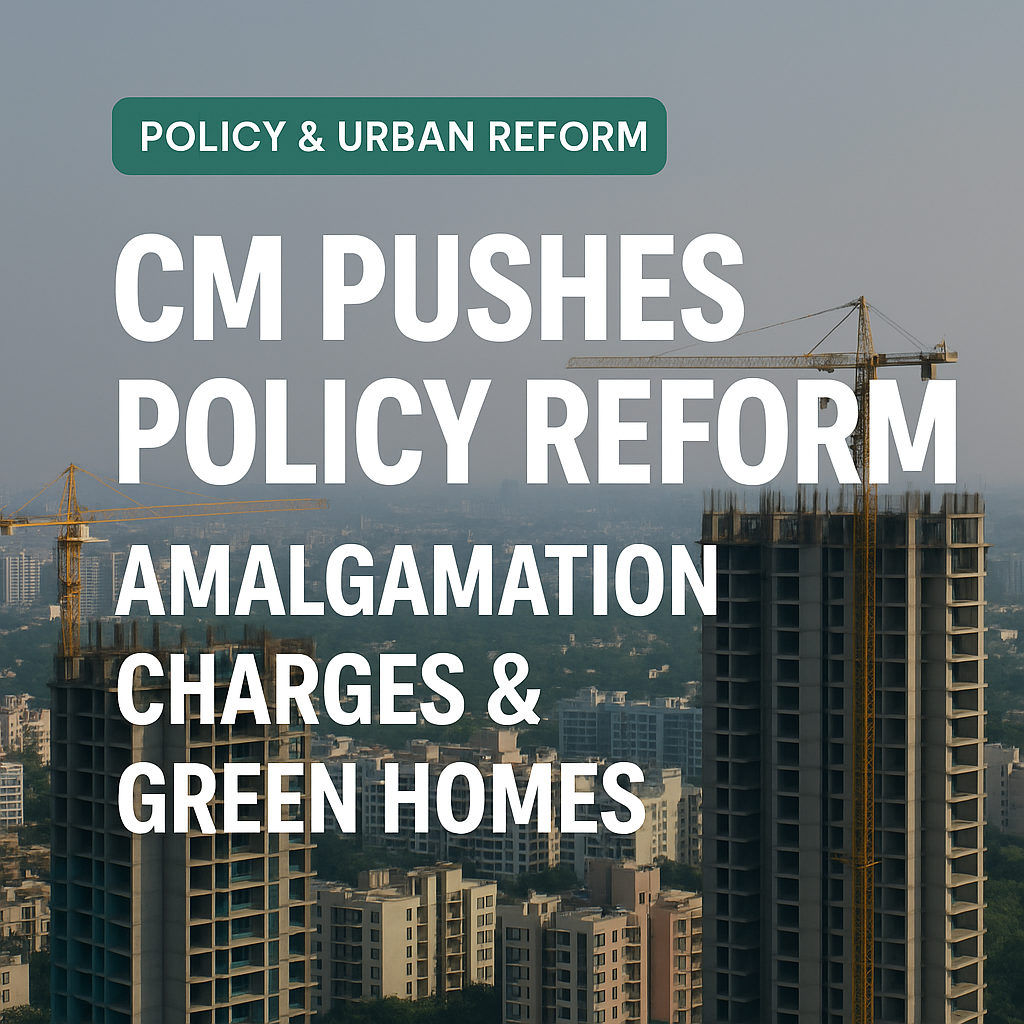
New Delhi — In a major push towards streamlining urban development and promoting sustainable infrastructure, Delhi Chief Minister Rekha Gupta has directed the state’s infrastructure task force to review and reduce the high amalgamation charges currently levied on commercial plots. The move aims to create a more investor-friendly ecosystem and accelerate construction activity in the national capital.
At a high-level meeting on Saturday, also attended by cabinet minister Manjinder Singh Sirsa, officials from the Municipal Corporation of Delhi (MCD), Delhi Development Authority (DDA), Delhi Metro Rail Corporation (DMRC), the Registrar of Co-operative Societies, and representatives of the Confederation of Indian Industry (CII), the Chief Minister called for a complete overhaul of cumbersome construction-related procedures.
“We must ensure seamless processes that reflect Delhi’s growth potential. Rationalising charges and eliminating red tape will make doing business here easier,” CM Gupta stated.
Key Reform Areas Identified
The task force presented a 10-point reform proposal that includes:
- Reduction in amalgamation charges for commercial plots.
- Extension of amalgamation provisions to residential plots to harmonise policies across property types.
- No requirement for revised layout plans in MCD areas, saving time and cost for developers.
- Implementation of a single-window clearance system for all construction-related approvals.
- Standardisation of development control norms across civic agencies like DDA and MCD.
- Time-bound approval processes for large-scale urban projects.
- Automation and simplification of business-related procedures with a digital-first approach.
- Rationalisation of property tax to encourage compliance and fair valuation.
- Efficient use of land allocated to DMRC, aligning with transit-oriented development strategies.
- Encouraging slum redevelopment through the Public-Private Partnership (PPP) model.
Green Building Policy to Include Residences
In a significant shift, CM Gupta also instructed that Delhi’s green building policy, which currently applies primarily to commercial infrastructure, be expanded to include residential developments.
“Sustainable development must reflect in every part of Delhi — homes and high-rises alike,” she said. “We must go beyond token initiatives and ensure that sustainability is a core principle in urban planning.”
The revised policy is expected to offer incentives for eco-friendly materials, energy efficiency, water conservation, and waste management in residential housing projects.
Focus on Ease of Doing Business
Underscoring the importance of a business-friendly environment, the Chief Minister asked the task force to identify and eliminate bureaucratic bottlenecks. A detailed report on required digital reforms and automation strategies, complete with implementation timelines, has been mandated.
Urban Development Experts React
Urban planners and industry leaders have welcomed the proposals. “Standardised norms and reduced charges will boost investor confidence,” said a senior member of the Confederation of Indian Industry. Experts believe these changes could catalyse a new wave of construction and sustainability initiatives in Delhi, especially if implemented with inter-agency coordination.
The task force is expected to submit its final action report within the next few weeks.
